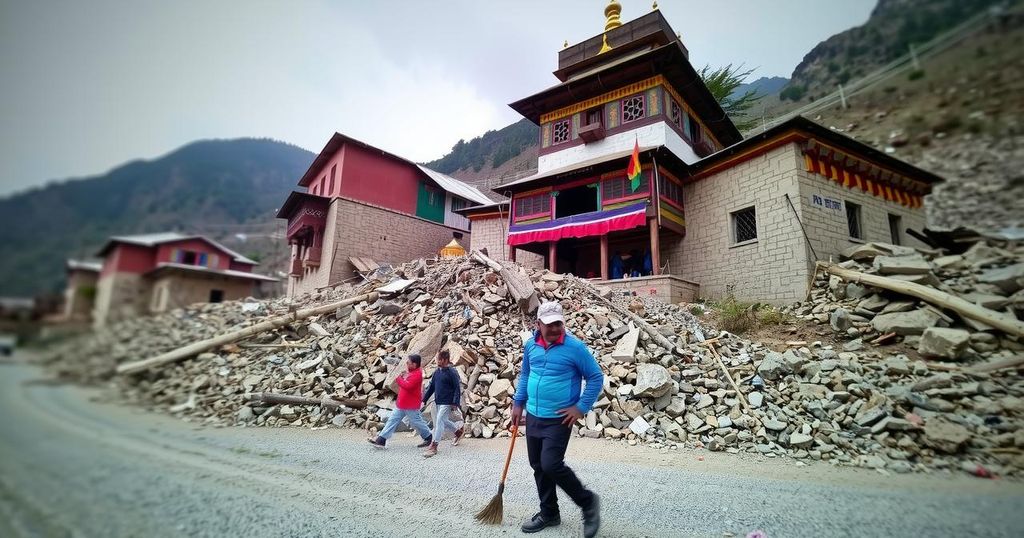India’s condolence message following the Tibet earthquake omitted references to China and its Sinicized term “Xizang”, in contrast to messages from pro-China countries like Pakistan. The Indian government offered condolences while maintaining a strategic silence on the political implications. This response reflects India’s complex diplomatic posture towards China amidst ongoing territorial disputes.
The recent earthquake that struck Tibet’s Mt Everest county of Dingri on January 7 has elicited varied responses from different nations, particularly concerning their acknowledgment of China’s control over Tibet. While pro-China nations such as Pakistan have expressed condolences directly to China, using the term “Xizang” – the Chinese nomenclature for Tibet – India notably refrained from incorporating either term in its official condolence message released on January 8. India’s external affairs ministry spokesperson, Mr. Randhir Jaiswal, extended sympathies for the loss of life and property in the Tibet Autonomous Region without addressing China. This approach reflects India’s longstanding position regarding Tibet’s status and China’s recent aggressive renaming efforts.
China reported receipt of condolences from multiple nations, including Russia, Pakistan, and Japan, and additional messages from various foreign ministries, including a note from UN Secretary-General Antonio Guterres. Despite tensions, particularly over border disputes and infrastructural projects in disputed territories, India’s silence regarding China’s claims signifies a strategic shift in its diplomatic communications. While official reports indicate significant casualties totaling 126 lives lost and damage to over 27,200 structures, the broader implications of international responses, particularly in connection to issues of sovereignty and identity, remain crucial to understanding the dynamics at play.
The earthquake in Tibet’s Dingri county not only led to significant casualties but also highlighted international perspectives on China’s governance of Tibet. Pro-China countries often adopt narratives that support China’s stance over disputed regions, such as Tibet, where China has actively sought to change perceptions and reinforce its narrative. India’s response, or lack thereof, underlines its complex relationship with China, particularly concerning historical grievances and contemporary territorial disputes. The political implications of these statements reflect broader national sentiments regarding sovereignty, identity, and geopolitical stances.
In summary, the earthquake in Tibet has sparked varied international responses, showcasing a clear distinction between how China and India articulate their positions regarding Tibet. While pro-China nations have embraced the Chinese narrative, India’s omission of specific references to China or “Xizang” reveals its cautious diplomatic strategy. This event serves as a reminder of the sensitive nature of sovereignty and territory in international relations, especially in the context of ongoing tensions between India and China.
Original Source: www.tibetanreview.net






